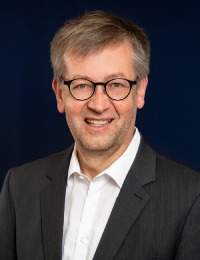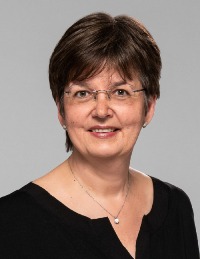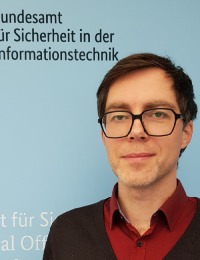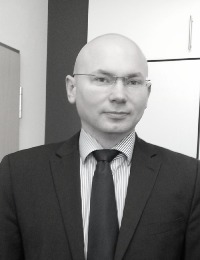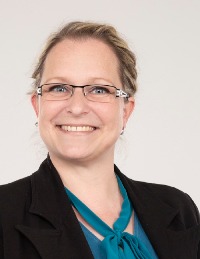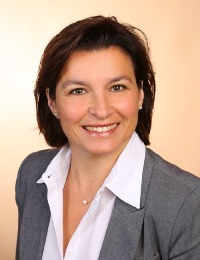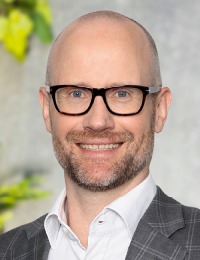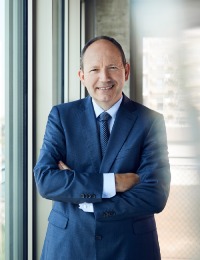Panels
Seven panel discussions will be held, where experts will exchange views on current prevention topics. You can find details of the content and the people involved below. The audience will be involved in the discussions. The events will take place in room „Eilenriedehalle B“.
Tuesday, October 4, 2022
- Prevention in times of cannabis legalisation: empty words, more of the usual or new orientation?10:00 - 11:30Moderation:Frederick Groeger-RothCrime Prevention Council of Lower Saxony (CPC)
In most position papers and statements on the upcoming cannabis legalisation, "more prevention" is demanded, claimed or promised as well, in a bullet point at the end, but often the point remains rather vague or is concretised as "more education". In contrast, there is a solid research base that shows that warnings and dramatisation rarely lead to behavioural change and that there are science-based alternatives, starting with efficient behavioural prevention programmes in schools, even from primary school age. Furthermore, the basic principles of effective environmental prevention can be applied to the needed transformation of existing regulatory, economic and physical environments to make it easier and more natural to consume less, better or not at all. However, there are various hurdles and obstacles for the broad anchoring of effective measures, including the discourses of the alcohol, tobacco and cannabis lobbies: "individual freedom and responsibility", "personal choice", "responsible consumption" are the feel-good concepts with public appeal.
The guiding question for the panel is therefore: how must the prevention field position itself in the future so that our consumption- and living-environments can be shaped in favour of prevention and harm reduction?
In this colloquium, prevention experts will discuss the possibilities, resistances, and necessary narratives that need to be considered if thorough, science-based and courageous measures of behavioural and, above all, environmental prevention are to be introduced. What can we learn from other countries in this regard? What should we have learned from alcohol and tobacco prevention?Burkhard Blienert, Commissioner of the Federal Government for Drug and Addiction PolicyDr. med. Gregor Burkhart, European Monitoring Centre for Drugs and Drug AddictionAndrea Hardeling, German Head Office for Addiction Issues e.V.Ricarda Henze, Lower Saxony Regional Office for Addiction Issues e.V.Maximilian von Heyden - Children at the heart of prevention12:00 - 13:30Moderation:Prof. Dr. Marlies KroetschUniversity of Applied Sciences Hannover
Childhood is a phase of life that is marked by special needs and vulnerabilities. The Corona pandemic has shown that crises have a particular impact on children and that their needs are not sufficiently taken into account. However, even before the Corona pandemic, it was clear that children's rights are not being considered enough and are far from being resistant to crisis in Germany.
Similar to the pandemic, it is also evident in prevention work that for a long time children were perceived as problem carriers rather than as those in need of protection and as holders of their own rights.
Especially the debate on children's rights shows that a significant effort must be made to bring about the change needed for the future. The main topic of the 27th German Prevention Congress therefore focuses on children at the heart of prevention.
This panel will address the debate concerning children's needs in the field of prevention and examine it in light of these and other questions:
What are current needs and central components of prevention for children?
Who is prevention aimed at in relation to children? To the children themselves, to specific institutions or to their legal guardians? And who is responsible for it?
How is the topic of prevention in relation to children currently being addressed politically? What is missing?
What role do children's rights play in prevention?
How can child protection concepts contribute to prevention?
Which topics will be more important in the future? Which new topics will be added? - Cybercrime - How can private Internet users protect themselves effectively?14:00 - 15:30Moderation:Bianca BiwerWEISSER RING e. V.
The digital world is increasingly dominating our everyday lives. However, increased digitalization of daily life also presents new security risks in addition to the convenience it brings. Private users are particularly vulnerable when criminals become active on the Internet. The opportunities for cybercriminals and the manifestations of cybercrime are diverse and constantly evolving.
For example, phishing, ransomware or malware can cause great financial damage to those affected. The goal of cybercriminals is to use such methods to spy on access data or personal information, encrypt files and data, and extort a ransom or take control of systems.
So-called hate crime on the Internet, sexual offenses such as cybergrooming or sexting, and various other offenses can also be classified under the term cybercrime and are becoming increasingly common in today's digital society.
Cybercrime, in whatever form, can have severe consequences for individuals and victims. These include not only immense financial and economic damage, but also serious psychological suffering among those affected and a fear of repeat victimization.
Due to advancing digitalization and the severe consequences of cybercrime, new developments in the field of digital security are essential at ever shorter intervals.
In this panel, questions around the manifestations of cybercrime, the perpetrator groups, the dangers, the consequences and possible preventive measures will be discussed.Robert Hoyer, Federal Office for Information SecurityRebecca Michl-KraußGeorg Ungefuk, Office of the Attorney General, Frankfurt on the Main - Are new strategies needed for urban safety and municipal crime prevention?16:00 - 17:30Moderation:Anna RauGerman-European Forum for Urban Security (DEFUS)Julia RettigEuropean Forum for Urban Security (Efus)
Public spaces that become increasingly tight due to a high density and demand for mixed-use design, diverse urban societies with differing interests and a widening social gap face city administrations that are in permanent crisis mode and have few financial and human resources for tackling the numerous challenges.
In addition, many citizens have a diffuse feeling of insecurity and social fears, which sometimes manifest in complaints about the situation in public spaces or are being channeled into low tolerance behaviors toward fellow citizens who decide to live differently.
Organizing the peaceful coexistence of an increasingly diverse society without losing the balance between freedom and security is one of the central challenges of the coming years. Municipalities are largely responsible for ensuring security and social peace on a day-to-day basis. They must integrate different cultures and lifestyles, support and manage varying social needs, and coordinate preventive work in urban areas. Urban security encompasses a wide variety of tasks, and a large number of actors are involved in its creation and maintenance.
In this panel representatives from city administration, police and experts on urban security and urban development will discuss and reflect the current approach of municipalities and the police and whether new urban security and municipal crime prevention strategies are needed.
This panel is organized in cooperation with the German-European Forum for Urban Security (DEFUS).Dolores Burkert, City of CologneZuhal Karakas, Head of the Department of Public Order of the City of HannoverDr. Tillmann Schulze, EBP Switzerland AGChristian Specht, Mayor, City of Mannheim


